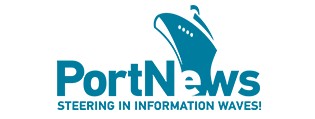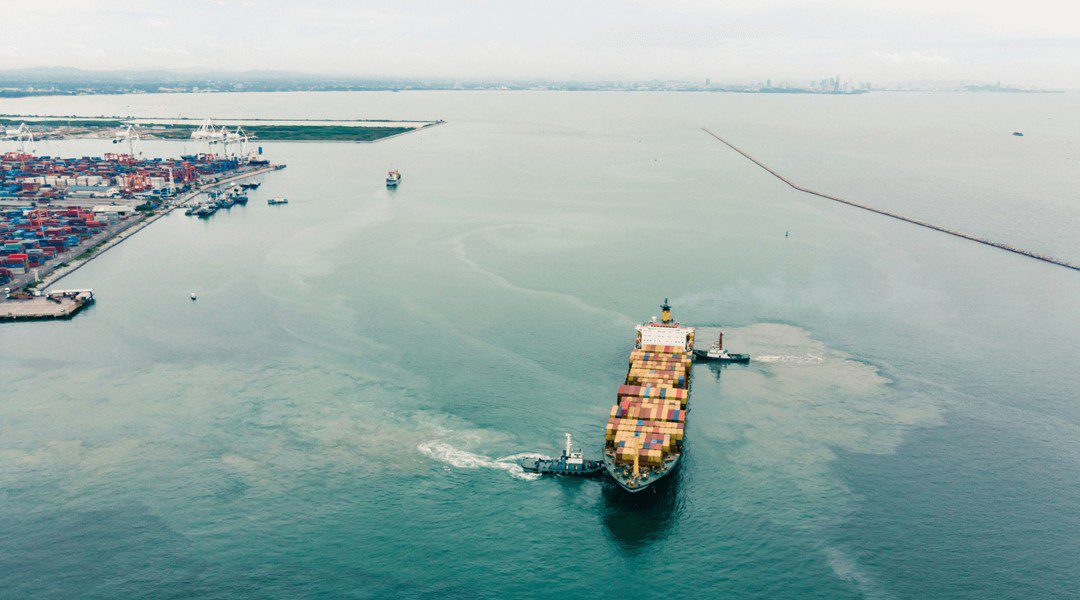Maersk transported more than 660,000 TEU using clean fuel in 2023

Shipping company Maersk noted strong growth in sales of the Maersk ECO Delivery Ocean product in 2023. Over 200 customers saved more than 680,000 tons of GHG emissions, according to the company’s release.
After 480,000 standard containers (TEU) in 2022, Maersk transported more than 660,000 TEU on green fuels last year. 212 customers opted for ECO Delivery Ocean for their seaborne cargo in 2023 and saved over 683,000 tonnes of greenhouse gases from being emitted into the atmosphere.
Especially for the seaborne cargo, Maersk ECO Delivery Ocean is a well-established and independently certified product to reduce the GHG emissions of an ocean transport by more than 80%.
The new product was developed by Maersk back in /18 and introduced in 2019. Trendsetters for the 100% commitment have been global brands such as Nestlé, Inditex, Novo Nordisk (100% of their Maersk outbound logistics on ECO Delivery) or Volvo Cars (100% of their inbound logistics on ECO Delivery) as well as regional brands like the successful Danish and Norwegian retail companies Flying Tiger Copenhagen and Europris.
The success story continues with several new customers who have signed up for ECO Delivery Ocean in the new year. Among them are large retail chains like Action from the Netherlands (with 100% of their ocean volume), ICA from Sweden (with 100% of their long-haul shipments) or the chemical company Borregard from Norway with 100% of their ocean volume. Borregard is also taking the next step to piloting an e-truck solution for low emission landside transports together with Maersk.
Maersk ECO Delivery Ocean product replaces fossil fuels with green fuels such as bio diesel and green methanol. The bio diesel is solely sourced from waste streams and lead to GHG emission reductions of above 80% on a well-to-wake basis. With the deployment and naming of the world’s first methanol enabled container vessel in September 2023, Maersk introduced also green methanol as a low emission fuel in container shipping. Up to now, the green methanol’s GHG reduction lies still below the figures of bio-fuels, but with the start of the scalable production of e-methanol, the emission reductions should go up to above 90% once the processes are all optimized. These significant GHG reductions of both fuel types take even emissions into account from procuring, producing, and transporting the ingredients and the green fuels – a so-called life cycle calculation.
Maersk defines ’green fuels’ as fuels with low (65-80%) to very low (80-95%) GHG emissions over their life cycle compared to fossil fuels. Maersk green fuels and its supply chain are verified by the International Sustainability and Carbon Certification (ISCC). The methodology for accounting emissions is based on GLEC V2 (Global Logistics Emission Council) and is certified by Smart Freight Center. The method is assured by PwC in accordance with the International Standard of Assurance Engagements 3410 (ISAE 3410 – Assurance Engagements on Greenhouse Gas Statements), showing CO₂e savings for the scope of the Maersk ECO Delivery agreement.
Shipping company Maersk noted strong growth in sales of the Maersk ECO Delivery Ocean product in 2023. Over 200 customers saved more than 680,000 tons of GHG emissions, according to the company’s release.
After 480,000 standard containers (TEU) in 2022, Maersk transported more than 660,000 TEU on green fuels last year. 212 customers opted for ECO Delivery Ocean for their seaborne cargo in 2023 and saved over 683,000 tonnes of greenhouse gases from being emitted into the atmosphere.
Especially for the seaborne cargo, Maersk ECO Delivery Ocean is a well-established and independently certified product to reduce the GHG emissions of an ocean transport by more than 80%.
The new product was developed by Maersk back in /18 and introduced in 2019. Trendsetters for the 100% commitment have been global brands such as Nestlé, Inditex, Novo Nordisk (100% of their Maersk outbound logistics on ECO Delivery) or Volvo Cars (100% of their inbound logistics on ECO Delivery) as well as regional brands like the successful Danish and Norwegian retail companies Flying Tiger Copenhagen and Europris.
The success story continues with several new customers who have signed up for ECO Delivery Ocean in the new year. Among them are large retail chains like Action from the Netherlands (with 100% of their ocean volume), ICA from Sweden (with 100% of their long-haul shipments) or the chemical company Borregard from Norway with 100% of their ocean volume. Borregard is also taking the next step to piloting an e-truck solution for low emission landside transports together with Maersk.
Maersk ECO Delivery Ocean product replaces fossil fuels with green fuels such as bio diesel and green methanol. The bio diesel is solely sourced from waste streams and lead to GHG emission reductions of above 80% on a well-to-wake basis. With the deployment and naming of the world’s first methanol enabled container vessel in September 2023, Maersk introduced also green methanol as a low emission fuel in container shipping. Up to now, the green methanol’s GHG reduction lies still below the figures of bio-fuels, but with the start of the scalable production of e-methanol, the emission reductions should go up to above 90% once the processes are all optimized. These significant GHG reductions of both fuel types take even emissions into account from procuring, producing, and transporting the ingredients and the green fuels – a so-called life cycle calculation.
Maersk defines ’green fuels’ as fuels with low (65-80%) to very low (80-95%) GHG emissions over their life cycle compared to fossil fuels. Maersk green fuels and its supply chain are verified by the International Sustainability and Carbon Certification (ISCC). The methodology for accounting emissions is based on GLEC V2 (Global Logistics Emission Council) and is certified by Smart Freight Center. The method is assured by PwC in accordance with the International Standard of Assurance Engagements 3410 (ISAE 3410 – Assurance Engagements on Greenhouse Gas Statements), showing CO₂e savings for the scope of the Maersk ECO Delivery agreement.





